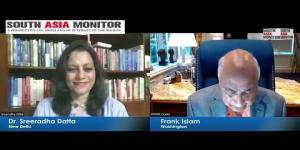
One Nation, One Election: Staggered electoral cycle important safeguard of India’s federal structure
The leitmotif of ‘One Nation’ is strongly aligned with the BJP’s policy and rhetoric; consider the 2017 introduction of the Goods and Services Tax (‘One Nation, One Tax’) and the abrogation of Article 370 in 2019 (‘One Nation, One Constitution’). The ONOE falls within this inherent paradigm: an overpowering centre under the guise of administrative cost-cutting and electoral efficiency.

Kolkata rape and murder case: Confronting our collective failures
The medic rape-murder case, which captured global attention in an era dominated by the attention economy, had the potential to ignite systemic reforms, given the brutality of the crime. The movement, like many before it, held the power to expose the moral failings of the ruling party in the state. Yet, as so often happens, it faltered within a couple of months—or perhaps was made to falter. Herein lies an uncomfortable reality: we, the aam aadmi (common man), must share the blame.

Why Pakistan needs to reform and regulate its madrassas
Many critics argue that madrassas are breeding grounds for extremism. While there are undoubtedly instances of some seminaries being linked to extremist ideologies, it is essential to recognize that the vast majority of mudarrassahs are not involved in such activities. However, the lack of regulation leaves these institutions vulnerable to misuse.

Bangladesh's passport purge: Worrying signs of authoritarianism, undermining of democratic principles
The interim government's decision to cancel the passports of 22 military officials is a stark reminder of the dangers of unchecked executive power. It violates the Constitution of Bangladesh, contradicts international legal standards, and disregards judicial precedents. Moreover, it reflects a troubling disregard for due process and the rule of law.













































